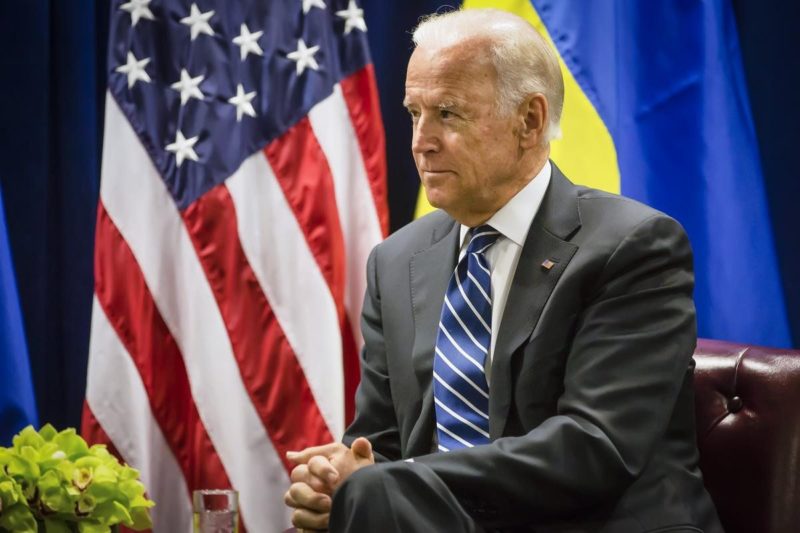Biden Now Says He No Longer Supports Hyde. That Is Not Enough.
Biden now says he will oppose the Hyde Amendment. But Hyde is not a bad law because of recently passed restrictions. It's been a bad law for 40 years, and Biden helped perpetuate it.

When it comes to access to abortion care, former Vice President Joe Biden is flipping and flopping all over the place.
For his 40-plus year political career, Biden—current Democratic presidential candidate and former U.S. senator from Delaware—has supported the Hyde Amendment, a law first passed in 1976 that denies public funding of abortions to pregnant people who can’t afford them.
Last month in what was seen as a major reversal of his position, Biden told an American Civil Liberties (ACLU) volunteer that he supported abolishing Hyde. Yet when NBC’s Heidi Przybyla followed up with Biden’s campaign earlier this week to check on his position, the campaign reversed the reversal, confirming to NBC News “that Biden still supports the Hyde Amendment.”
But there was a wrinkle: “Biden’s campaign told NBC he would be open to repealing Hyde if abortion avenues currently protected under Roe were threatened.”
Huh?
Today, Biden flipped again. Speaking in Atlanta, Biden said he now supports overturning Hyde because “I can’t justify leaving millions of women without access to the care they need and the ability to (access) their constitutionally protected right.”
According to CNN, Biden told the crowd he had changed his mind because Republican state lawmakers have enacted “‘extreme laws in clear violation of constitutional rights’ protected by the U.S. Supreme Court’s Roe v. Wade decision, making access to abortions more difficult for women who cannot afford the procedure or travel to obtain it.”
“If I believe health care is a right, as I do,” Biden said, “I can no longer support an amendment that makes that right dependent on someone’s zip code.”
Taken together, these statements reveal a profound misunderstanding of what the Hyde Amendment does and who it has affected, as well as a brazen abrogation of his and his party’s responsibility for the damage done by Hyde, which is itself, to paraphrase Biden, an extreme law making access to abortions more difficult for women who cannot afford the procedure or travel to obtain it.
First of all, when is it ever OK to deny someone access to health care because of their income level and economic status, irrespective of what another political party does? Hyde is an abortion restriction and one that is highly targeted to affect the most vulnerable. In fact, denying poor women access to care was the very point of Hyde: During floor debate on the amendment in 1976, Rep. Henry Hyde (R-IL) for whom the amendment is named, asserted he “would certainly like to prevent, if I could legally, anybody having an abortion, a rich woman, a middle-class woman, or a poor woman. Unfortunately, the only vehicle available is the HEW Medicaid bill.”
Hyde is not relevant because there are now more restrictions—it’s a restriction that has most deeply harmed low-income people and people of color by denying them abortion care. For the people affected by Hyde, it does not matter if there is one abortion provider or 60 abortion providers in a given state, because the issue is the means for paying for medical care, in the same way that it does not matter if someone lives within a ten-mile radius of 100 dentists but does not have money for dental care. Hyde is the long-standing precursor to every restriction that has come since. And it’s one Democrats helped sustain year after year, revealing that when it came to low-income people and people of color in need of abortion care, politics has always been prioritized over health and human rights.
Biden did not begin to acknowledge the fact that Democrats, for all their pro-choice platforms and promises, have never fully supported access to abortion care. In the 2008 presidential campaign, for example, Barack Obama pledged to end Hyde. When he became president, he did not bother to pretend to fight it; the Obama administration included the amendment in every one of his administration’s budgets. And we know who his vice president was.
People of means could get abortion care before the most recent spate of attacks on access to abortion, and they will still get abortion care under those restrictions; they will just have to spend more time and money. But for decades, Hyde has been as great a barrier to access to abortion care for low-income people as any restriction dreamed up by the fanatical anti-choice movement. Now that access has been decimated across the country, repealing Hyde alone is a quarter-measure at best. Unless you proactively promise to pass and fight for legislation providing robust funding for access to abortion care for everyone in need, it’s like promising a desperately thirsty person a drink just after you know the well has run dry.
The current situation underscores the urgent need to go far beyond repeal of Hyde when it comes to the most vulnerable. New restrictions being put in place everywhere will unquestionably make access to abortion care for low-income people even more limited. But to condition your support or opposition to Hyde on the notion that, well, now things are really bad, is to abdicate responsibility for how bad you have helped make things for decades. To leave it at that is to further reinforce the barriers to care faced by untold numbers of people.
And it makes me doubt your sincerity.
